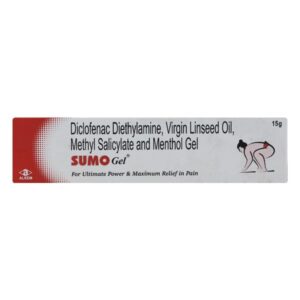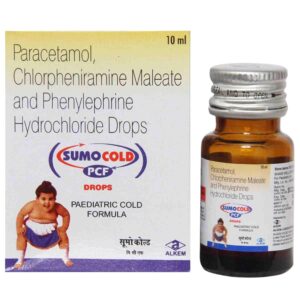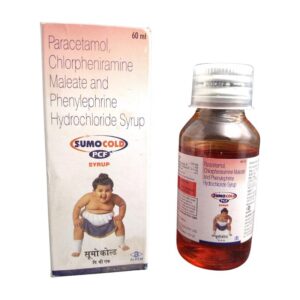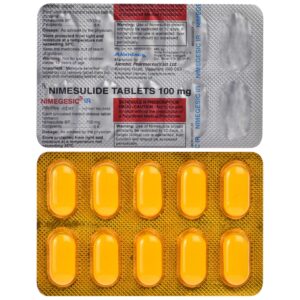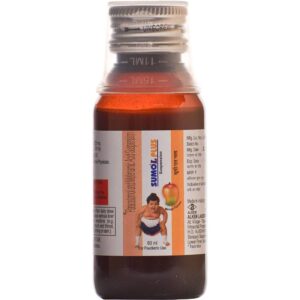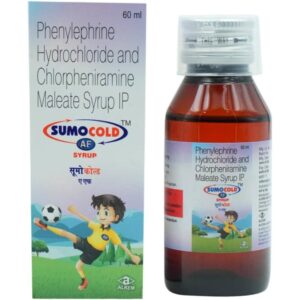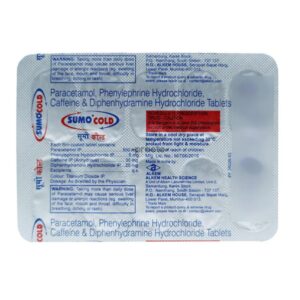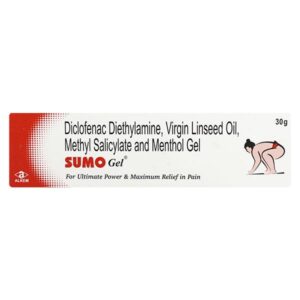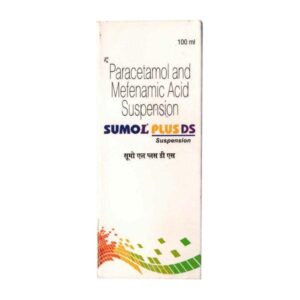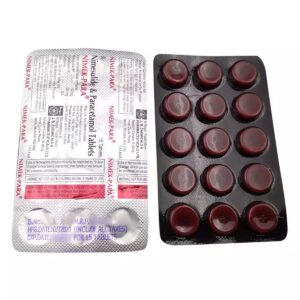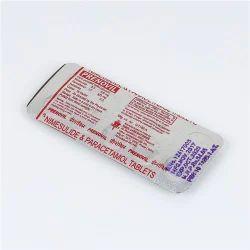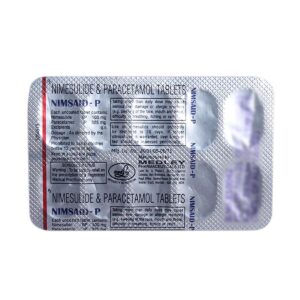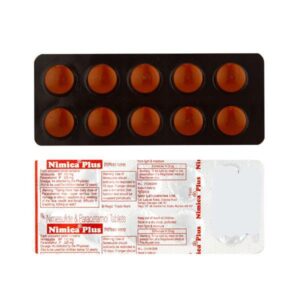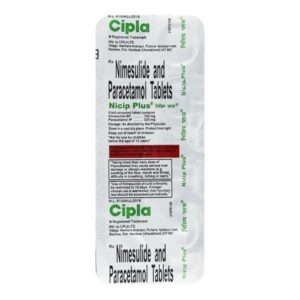PARACETAMOL (ACETAMENOPHEN) + NIMESULIDE
Paracetamol (acetamenophen): Paracetamol, also known as acetaminophen, is a commonly used over-the-counter medication for relieving pain and reducing fever. It is primarily indicated for mild to moderate pain relief, such as headaches, muscle aches, and toothaches, as well as for reducing fever.
The exact mechanism of action of paracetamol is not completely understood, but it is believed to work mainly in the central nervous system. It inhibits the synthesis of prostaglandins, which are chemical messengers that promote pain and fever, by targeting an enzyme called cyclooxygenase (COX). Paracetamol is thought to predominantly inhibit COX-2 in the brain, which helps to reduce pain and fever without significantly affecting inflammation in peripheral tissues.
The recommended dosage of paracetamol for adults is typically 500 to 1000 milligrams (mg) every 4 to 6 hours, with a maximum daily dose of 4000 mg. However, it is always best to follow the instructions on the packaging and consult with a healthcare professional for specific recommendations. The dose for children is based on their weight and age, and it is crucial to use an appropriate pediatric formulation.
Generally, paracetamol is considered to be safe when used as directed. However, it is not without its potential side effects. The most common side effects include nausea, vomiting, stomach pain, and allergic reactions like skin rash or itching. In rare cases, paracetamol can cause serious liver damage, particularly when taken in high doses or in combination with alcohol or certain medications that also affect the liver. It is important to avoid exceeding the recommended dose and to speak with a healthcare professional if any concerning symptoms occur.
Overall, paracetamol is a widely used and effective medication for pain and fever relief. However, it is essential to use it responsibly and always follow the recommended dosage and guidelines to minimize the risk of side effects.
Nimesulide: Nimesulide is a non-steroidal anti-inflammatory drug (NSAID) that is commonly used to relieve pain and reduce inflammation in conditions such as arthritis, osteoarthritis, and menstrual cramps. It belongs to the selective COX-2 inhibitor class of NSAIDs.
The mechanism of action of Nimesulide involves inhibiting the production of prostaglandins, which are responsible for causing pain and inflammation. It achieves this by specifically targeting and blocking the action of the enzyme cyclooxygenase-2 (COX-2), while sparing the enzyme cyclooxygenase-1 (COX-1). By selectively inhibiting COX-2, Nimesulide reduces inflammation and pain without affecting the protective functions of COX-1 in the stomach lining.
Nimesulide is available in various forms including tablets, capsules, and a gel for topical application. The recommended dose of Nimesulide may vary depending on the condition being treated and the individual patient. It is typically taken orally with a glass of water, preferably with food to minimize stomach upset.
Common side effects of Nimesulide include nausea, vomiting, stomach pain, indigestion, diarrhea, headache, dizziness, and skin rashes. In some cases, it may cause liver damage, so it is important to monitor liver function regularly during prolonged treatment. Additionally, individuals with a history of peptic ulcers or gastrointestinal bleeding should use caution when using Nimesulide, as it may increase the risk of these conditions.
It is essential to consult a healthcare professional before starting Nimesulide, as they can provide personalized dosing instructions and assess if it is safe for use based on an individual’s medical history and other medications they may be taking.

